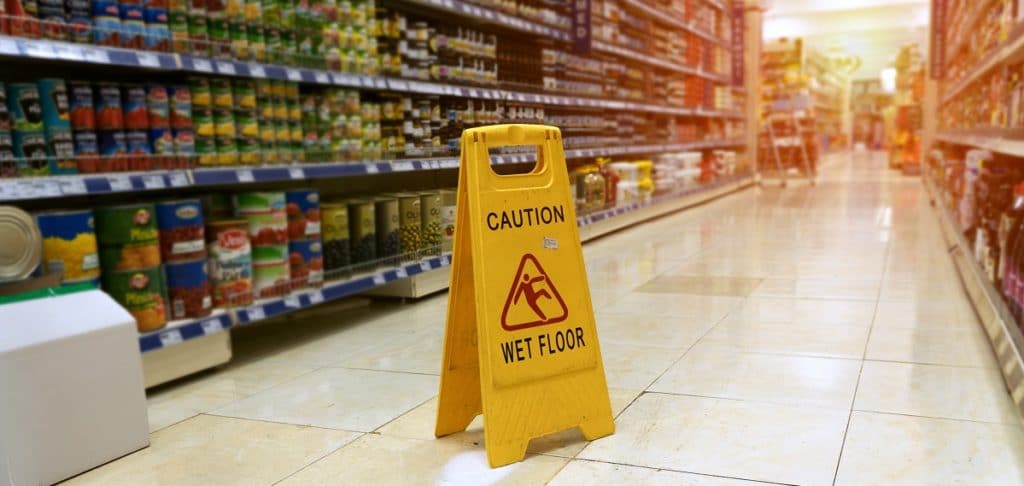Slip and fall accidents account for more than a million emergency room visits each year. One of the possible ways this type of personal injury can occur is by slipping on spilled liquids not properly cleaned up in a publicly accessible store. Today, we’re going to discuss what responsibilities or duties a store has when it comes to cleaning up liquids.

The Legal Duty to Keep a Premises Safe
Any store open to the public has a legal responsibility to keep its premises as safe as possible. This includes cleaning up any liquids that may be on surfaces where people walk, which can include aisles, entryways, or areas around checkout counters in stores. Legally, what a store owner must do is make sure any spilled liquids are cleaned up as quickly as possible to mitigate fall risks. Otherwise, they may be held legally liable for related injuries.
What ‘Reasonable Notice’ Is and Why It Matters to Store Owners
The legal responsibility of a store owner or the individuals who were responsible and capable of cleaning up a spill will depend on what’s known as reasonable notice. This means whether or not the store can be held responsible for a slip and fall injury will depend on when they knew about the risk and if they had time to clean it up.
And if a spill is seen or known about but it can’t be cleaned up right away, the duty of the store is to mitigate slip and fall risks by blocking off the area where liquid is in a way that’s appropriate until it can be cleaned up. In instances like this, efforts need to be made to clean up slick floors, or post clearly visible warning signs.
When a Store Can Be Held Responsible for Slip and Fall Injuries
In one case involving in-store injuries, Costco was held legal responsible when a customer slipped and fell on spilled liquid soap. The injured woman reported that several employees walked by the spill without cleaning it up. The store was subsequently ordered to pay medical bills and compensation for pain and suffering. This is an example of when a store can be held legally responsible for slip and fall injuries. A store may also be considered responsible legally if somebody reported a spill to a store employee and nothing was done even though there was time to take action.
What a Personal Injury Attorney Can Do
With any type of personal injury likely caused by someone else’s negligence, it’s best to seek assistance or input from a personal injury attorney. A lawyer specializing in slip and fall-related injuries can clarify your legal options and answer your questions. If you were injured in a store, a personal injury attorney may also be able to secure evidence showing some type of negligence on the part of the owner or employees.















